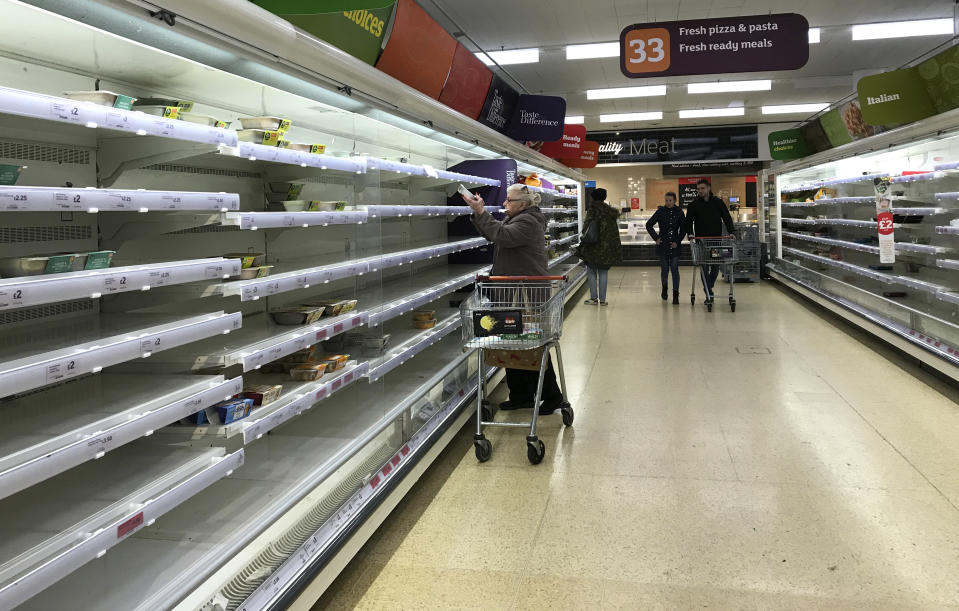Record £10.8bn spent on groceries in 'March madness'

A record £10.8bn ($13bn) was spent on groceries in the UK in March, as fears about the spread of novel coronavirus and a possible lockdown drove people to stock up.
Market research firm Kantar Worldpanel said on Tuesday 31 March that grocery sales in the UK had risen by 20.6% over the last four weeks. The unusually large growth makes March the biggest month on record for grocery sales.
“It has been an extraordinary month and social distancing measures have had a profound impact on all our daily lives – from the way we work and socialise, to how we shop and care for our loved ones,” said Fraser McKevitt, head of retail and consumer insight at Kantar.
“Retailers and their staff have been on the frontline as households prepare for an extended stay at home, with grocery sales amounting to £10.8bn during the past four weeks alone – that’s even higher than levels seen at Christmas, the busiest time of year under normal circumstances.”
Read more: Supermarkets create thousands of jobs as UK stockpiles
Supermarkets have in recent weeks been forced to introduce limits on baskets after shortages of items like toilet paper and soap were reported across the country. By the time prime minister Boris Johnson ordered the population to stay at home at the start of last week, pictures of empty shelves in supermarkets across the country were commonplace on social media.
Bruno Monteyne, a supermarket analyst at investment firm Bernstein, dubbed it “March madness” on Tuesday.

88% of British households visited the supermarkets between 16 March and 19 March, Kantar said, accounting for an additional 42m visits. The company had previously said that shortages were driven by people making more frequent visits to the shops and buying slightly more, rather than more traditional stockpiling activity.
“It’s inevitable that shoppers will add extra items to their baskets when faced with restrictions on their movement and possible isolation if one of them becomes unwell, but many families are also adjusting to having more mouths to feed,” said McKevitt.
“Those with children over the age of 16 spent £508 this month on average, £88.13 more than they did in March 2019 – a trend that likely reflects students returning home from college and university.”
Read more: Ocado closes website amid 'unprecedented strain'
McKevitt said the closure of restaurants and pubs over the last week had also contributed to bigger shops as people eat more meals in the home.
Alcohol sales jumped by 22% in March, which McKevitt put down to people “stocking up to recreate trips to the pub with friends over apps like Houseparty and FaceTime.”
All 10 of the UK’s biggest grocers saw their sales increase in the 12 weeks to 22 March. Sales at Iceland jumped by 11.7% as Brits looked to stock up their freezers and sales at online only supermarket Ocado (OCDO.L) jumped by 12.5%. Ocado was recently forced to suspend new orders due to surging demand.
Sales at German discounters Aldi and Lidl rose by 11% and 17.6% respectively.
McKevitt said he expects sales to slow now that UK pantries and fridges are full.


